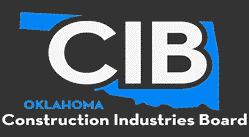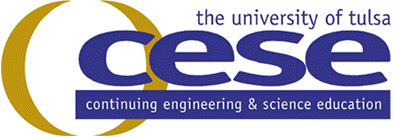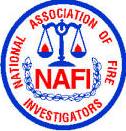| Professional | The failure analysis professionals | |||||||||||||||||||||||||||||||||||||||||||||||||||||||||
|
Our professionals are experienced in
engineering, failure analysis, and energy. Our areas of excellence
are electrical, mechanical, and petro-chemical. Our professionals and company are licensed in many states as professional engineers. We maintain model engineer status with NCEES. Our professionals are also state licensed electrical contractors. In addition, we have a Federal Communication Commission General Radiotelephone license. We are certified consultants and have numerous commendations. The following organizations are representative of our associations and affiliations.
The State Board for Professional Engineers and Land Surveyors administers the licensing of engineers by the "Engineering and Land Surveying Act, Oklahoma Statute, OS 59 § 475". Practices are by "State Board for Licensure for Professional Engineers and Land Surveyors Rules, Oklahoma Administrative Code, OAC 245". Other states have similar criteria. All of our engineers and our company are licensed.
The Construction Industries Board regulates electrical installations and contractors by "Electrical Licensing Act, Oklahoma Statute, OS 59 § 1680". Mechanical installations have similar laws. Practices are by "Electrical Industry Rules, Oklahoma Administrative Code, OAC 158:40". By this title, the National Electrical Code is identified as the minimum electrical installation standard. Our principal engineers are licensed electrical contractors.
The National Council of Examiners for Engineering and Surveying (NCEES) is a national non-profit organization composed of engineering and surveying licensing boards representing all states and U.S. territories. The NCEES maintains a Model Engineer records program to assist in registration. Our engineers maintain Model Engineer status.
The professionals teach the Professional Electrical Engineering Class in preparation for the principles and practices engineering exam through the University of Tulsa Continuing Education, www.cese.utulsa.edu . They have written the review e-book.
The Institute of Electrical and Electronic Engineers is the largest professional engineering society in the world. The principal engineer is a Fellow and the other principal engineer is a Sr. Member. They are active in the Petroleum and Chemical Industry Committee of the Industry Applications Society and in the Standards Committee which writes and approves internationally and government accepted standards. The professionals have written over thirty papers peer reviewed and published by the IEEE.
The American College of Forensic Examiners Institute of Forensic Science (ACFEI) is an independent, scientific, and professional society, and is the largest professional membership society representing forensic examiners. The principal is a Fellow of American College of Forensic Examiners (FACFEI), is a Diplomate of American Board of Forensic Engineering and Technology (DABFET), and is Certified in Homeland Security by the American Board for Certification in Homeland Security (CHSIII-ABCHS). The other engineers are Certified Forensic Consultants.
The National Fire Protection Association is the authority on fire, electrical, and building safety. The NFPA publishes the National Electrical Code (70), Guide for Fire and Explosion Investigation (921), National Fuel Gas Code (54) and numerous other standards. The mission of the international nonprofit NFPA is to reduce the worldwide burden of fire and other hazards on the quality of life by providing and advocating consensus codes and standards, research, training, and education. The principals are voting members of the electrical committee.
The National Association of Fire Investigators has long recognized the need for an accepted method and standard of evaluating the qualifications of individuals who are conducting Fire, Arson and Explosion Investigations. The national Certified Fire and Explosion Investigator program was instituted in August 11, 1983. The program has grown in recognition and has expanded to provide certification internationally as well as within the US. All personnel are Certified Fire and Explosion Investigators.
The International Association of Arson Investigators - Oklahoma Chapter is a non-profit organization with the following objectives among others: To unite for mutual benefit those public officials and private persons engaged in the control of arson and kindred crimes and to provide for exchange of technical information and developments. All our professionals are members of IAAI-OK.
The State Fire Marshal agency is charged with the responsibility of enforcing the codes and standards relative to fire safety adopted by the State Fire Marshal Commission under the "Fire Marshal Act, Oklahoma Statute, OS 74 § 314-325". "State Fire Marshal Commission Rules, Oklahoma Administrative Code, OAC 265:25-1-3" identify the incorporated national codes and standards. The Codes include recognized standards such as the NFPA. The principals are voting members of the NFPA electrical committee.
Each City and jurisdiction has ordinances that supplement or modify other codes. These also provide for local licensing requirements. Locally utilities are controlled by franchises under Title 15. The building code is Title 51 and the Electrical Code is Title 52. Our principals have been licensed as contractors.
The Federal Communication Commission regulates all public and wireless communications in the United States. The principal has maintained a Commercial General Radiotelephone License for more than 40 years and has an Extra Class Amateur Radio license.
The Society of Petroleum engineers is the technical and professional home for those engaged in all aspects of the oil and gas industry. The Society is made up of 73,000 professionals across many disciplines. The principals operate an oil and gas company. The principal has published many peer reviewed papers encompassing his more than 30-years of experience and membership in the SPE.
Liquefied petroleum gas is regulated by the "Oil & Gas Act, Oklahoma Statute, OS 52". The liquefied petroleum gas industry operates under "Liquefied Petroleum Gas Rules, Oklahoma Administrative Code, OAC 420-422". The principal engineers have operated in the petroleum industry for many years.
The Corporation Commission is responsible for regulating utilities and industries by "Corporation Commission Act, Oklahoma Statute, OS 17". "Corporation Commission Rules, Oklahoma Administrative Code, OAC 165" identifies the practices of the OCC. The oil and gas industry operates under OCC rules. The Standards of the IEEE including the National Electrical Safety Code have been adopted by the Commission. The principals have been accepted as experts for testimony before the Commission in utility and petroleum issues. The principals have also testified before the Federal Energy Regulatory Commission. The principal engineers own and operate an oil and gas natural resources company.
The CV of the professionals identifies their extensive experience and credentials. |
Specialists
in energy systems including electrical, mechanical & petrochemical
|







